Huawei Mate XS2 hands-on preview
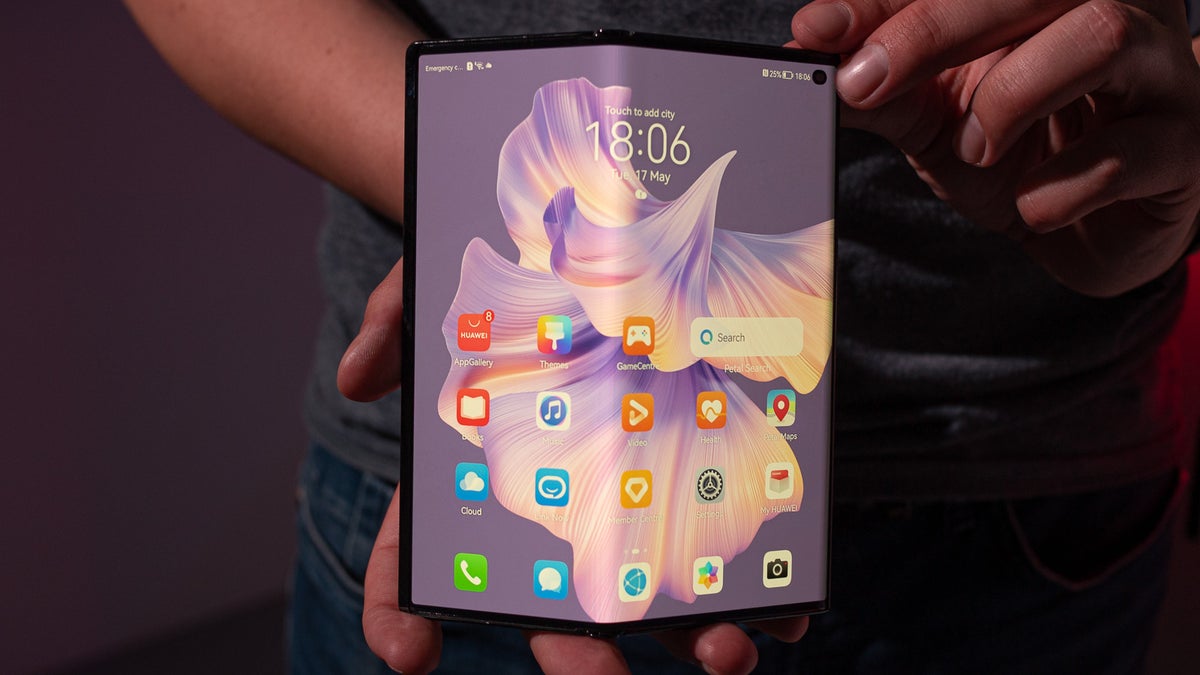
The whole smartphone world is slowly “unfolding” as every major brand out there is trying to hop on the flexible screen train. Meanwhile, Huawei is aiming to perfect what the company has already achieved, being one of the pioneers and forerunners in this race.
Back in 2020, the company launched the Huawei Mate XS - an evolution of the first Huawei foldable. The device boasted a redesigned hinge, upgraded specs, and newly developed screen cover in a bid not to follow in the footsteps of Samsung and the hinge fiasco of the original Galaxy Fold.
Design
Huawei is persisting with the outward fold design, and this idea has been perfected in the Huawei Mate XS2. The device looks stunning from all angles, and it’s even smaller and lighter than its predecessor.
The clicky mechanism that releases the display is still there, and the hinge has been upgraded to be even flatter when unfolded (70% flatter, according to Huawei officials). It feels really solid in the hand, and the crease is almost non-existent (we couldn’t even see it during our initial time with the device).
The left side of the device houses the thick strip with the camera system and the hinge release mechanism, and this design results in a comfortable grip when you unfold the Mate XS2. In a folded state the phone is fairly compact, actually a tad more compact than a regular Galaxy S22 Ultra.
Display
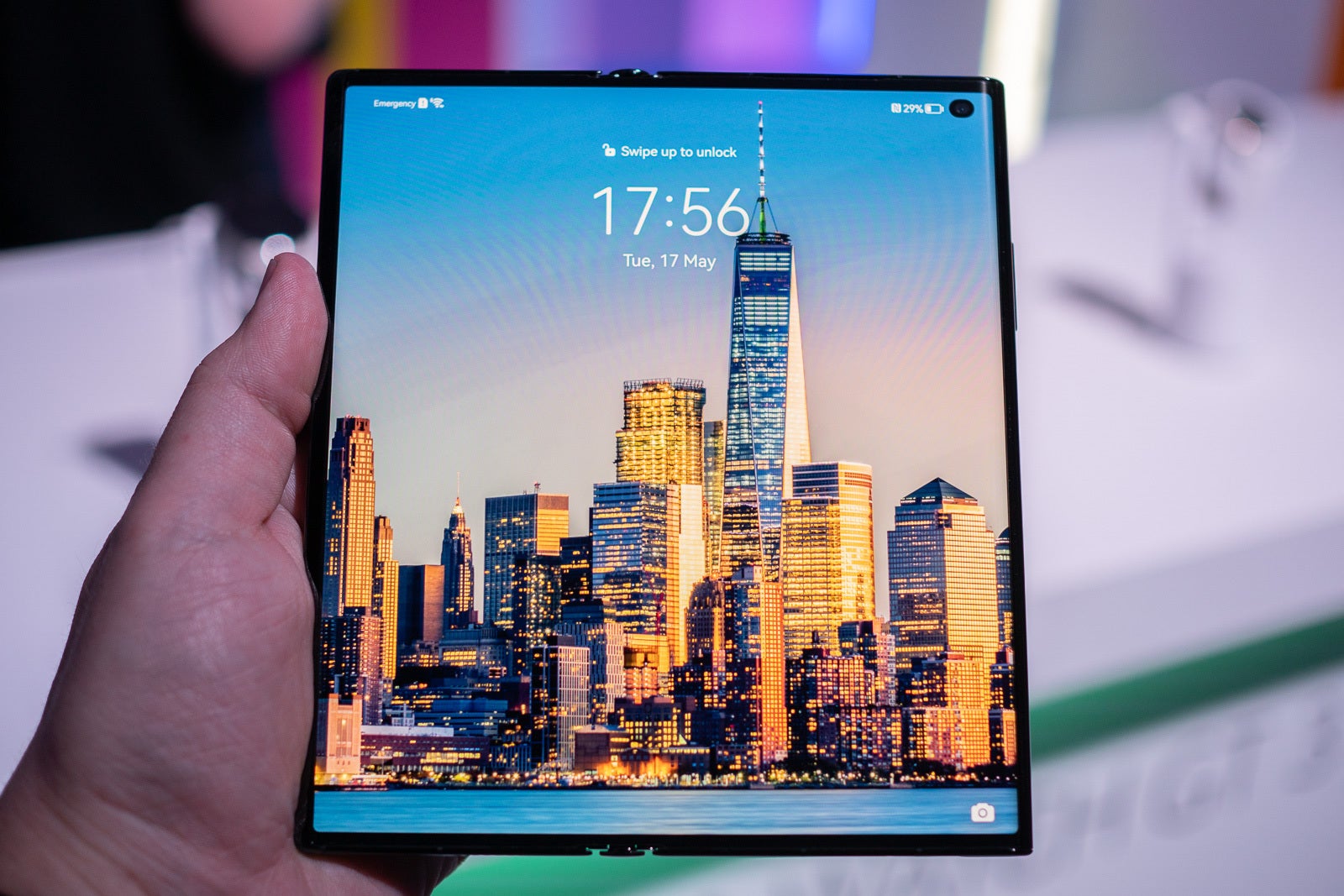
The Mate XS2 has some seriously stunning display specs on paper - a 7.8-inch OLED panel with 2480x2200 resolution (resulting in 424 PPI), a 120Hz refresh rate and P3 wide color gamut. In reality, the screen does look gorgeous, and it also gets pretty bright.
As we already mentioned, the crease is almost indistinguishable and the actual material laying on top of the display has been redesigned and strengthened to accommodate input from a stylus.
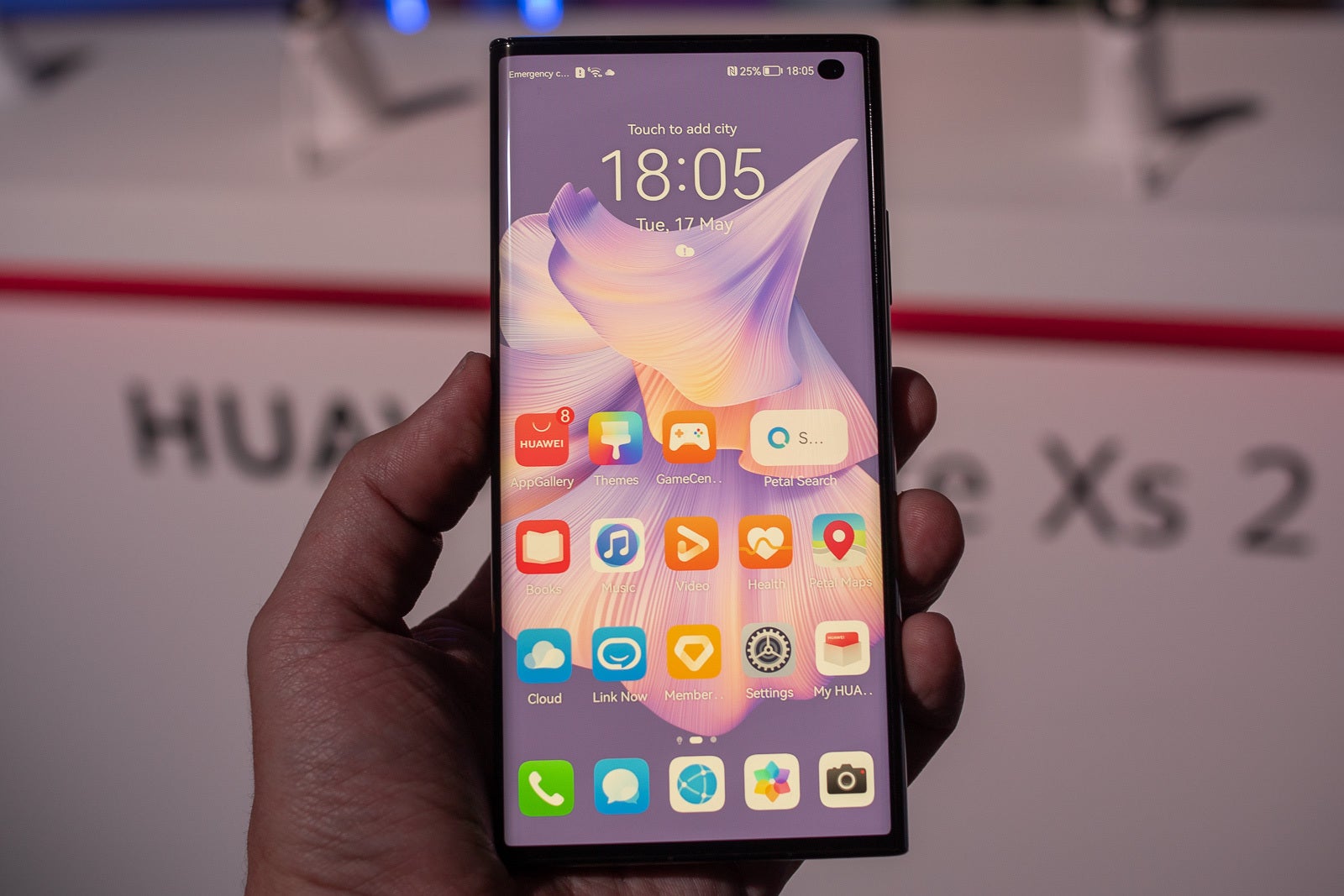
When folded, the Mate XS2 displays 6.5-inches of information at 1176 x 2480 resolution. The surface of the screen feels very sturdy, almost glass-like and it doesn’t catch your finger when you swipe.
(We can’t wait to carry out our full display test procedure, so stay tuned - results should pop-up here in the following days).
Performance and Software
The Huawei Mate XS2 runs on last-gen hardware - the Qualcomm Snapdragon 888 SoC to be exact. The setup involves one performance core, clocked at 2.84GHz, three 2.42GHz and four 1.8GHz ones - your usual 888 arrangement, more or less. The Adreno 660 GPU is on graphics duties. The version we tested came with 8GB of RAM and 256GB of onboard storage. One major drawback, though, is that the phone uses a 4G version of the 888 chipset to circumvent the restrictions, stretching their hands even to silicon, so no sweet 5G for you with this one.
Now, sporting a processor from a generation back could be a turn-off for some people but in reality, the Mate XS2 is plenty fast. The device runs EMUI 11.0 still, which is pretty optimized at this point - there are no hiccups or lag of any kind - everything works smoothly.
It seems that the OS makes really good use of the large screen - the Adaptive UI allows you to split the screen with a single swipe, open small windows, and apps also automatically stretch when you unfold the phone, and retract when you fold it back. Of course, Google apps are not present onboard, no way around that.
We weren’t able to run benchmarks on the Mate XS2 (that’s coming) but our initial impressions were very positive when it comes to real-life performance and what you can and can not do with a foldable device of this sort.
It seems that the OS makes really good use of the large screen - the Adaptive UI allows you to split the screen with a single swipe, open small windows, and apps also automatically stretch when you unfold the phone, and retract when you fold it back. Of course, Google apps are not present onboard, no way around that.
We weren’t able to run benchmarks on the Mate XS2 (that’s coming) but our initial impressions were very positive when it comes to real-life performance and what you can and can not do with a foldable device of this sort.
Camera
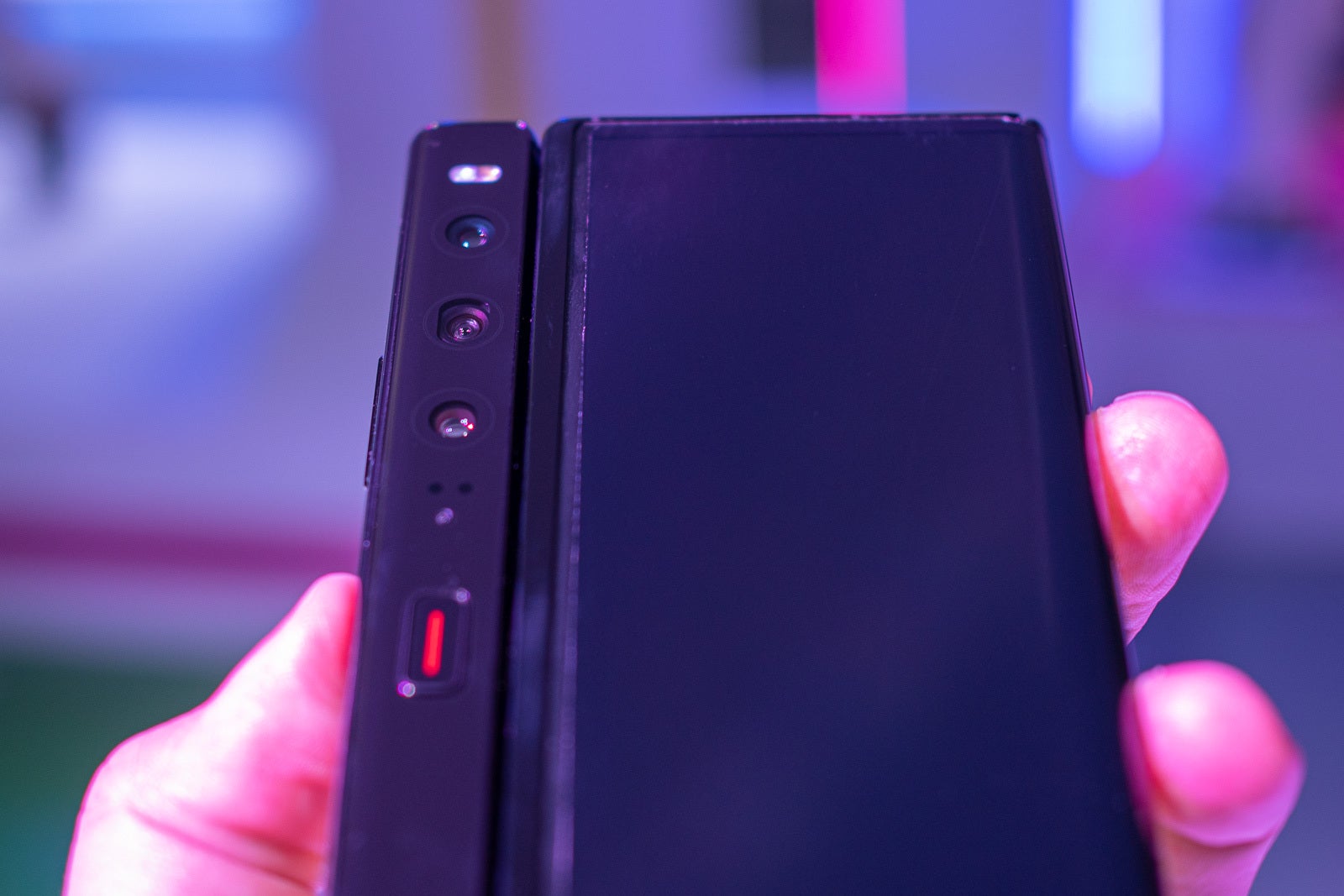
One of the biggest upgrades in the Huawei Mate XS2, compared to its predecessor, is the camera system. The phone now comes equipped with a triple module on the back, consisting of a 50MP primary sensor, a 13MP ultra-wide one and a 8MP 3.5x optical zoom telephoto lens with an LED flash.
On the front there’s a 10.7 megapixel selfie camera, and Huawei also boasts something called “enhanced computation optics” to further enhance the resulting images. We were able to snap a few quick shots during the hands-on time (can’t publish those at this point), and the results were pretty pleasing, especially from the main camera.
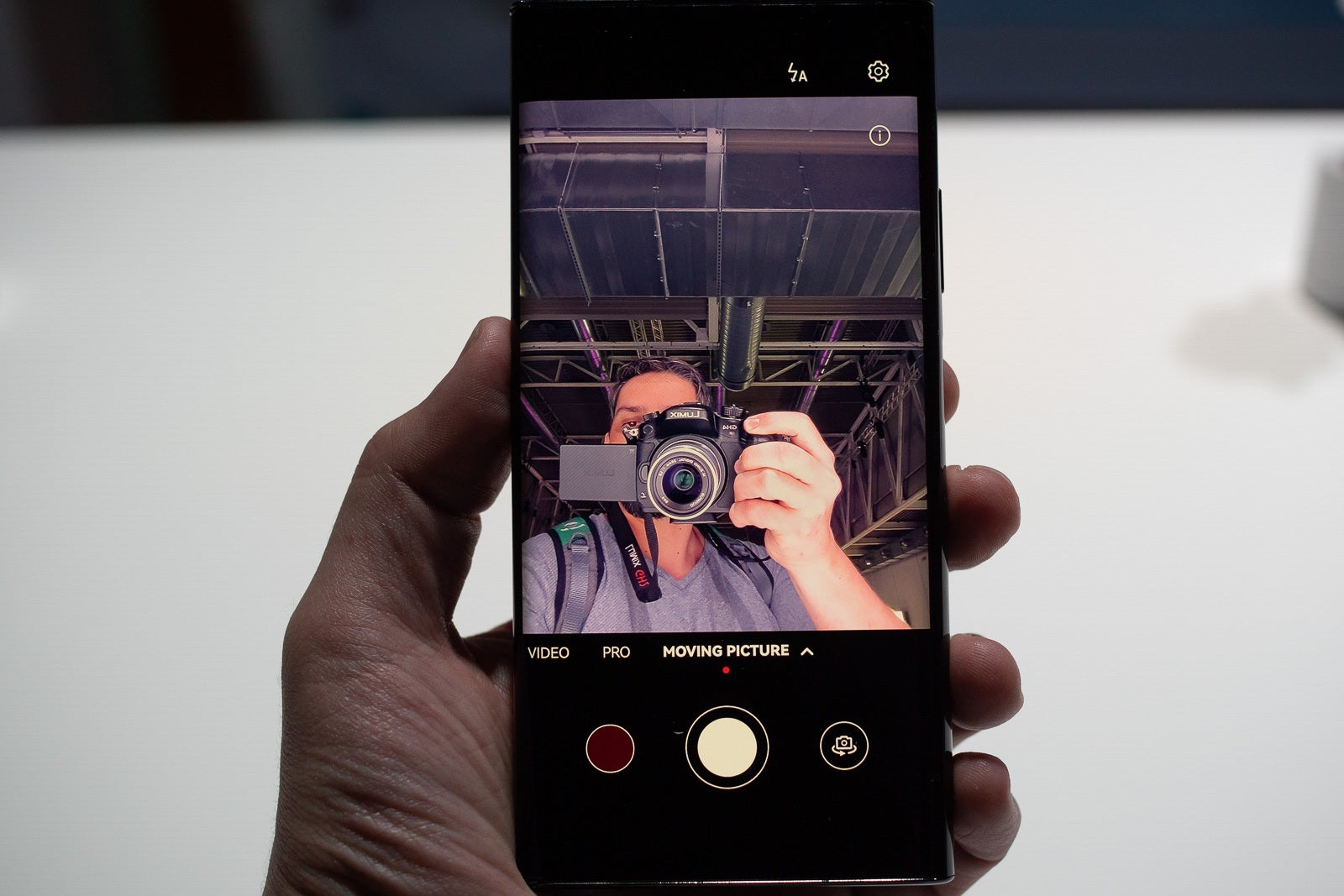
We’ll do a full camera run-down with samples and video once the phone falls in our greedy hands!
Battery Life and Charging
The battery capacity in the Mate XS2 has been slightly upgraded compared to the last model - the phone now features a 4600mAh battery (most likely divided into two cells for fast-charging and design purposes), compared to the 4,500mAh in the first XS model.
The phone supports fast charging with power up to 66W, and also wireless charging and reverse charging. Huawei claims that you can charge the battery to 90% in less than 30 minutes but we’ll have to check this ourselves once the phone arrives.
The phone supports fast charging with power up to 66W, and also wireless charging and reverse charging. Huawei claims that you can charge the battery to 90% in less than 30 minutes but we’ll have to check this ourselves once the phone arrives.
Competitors
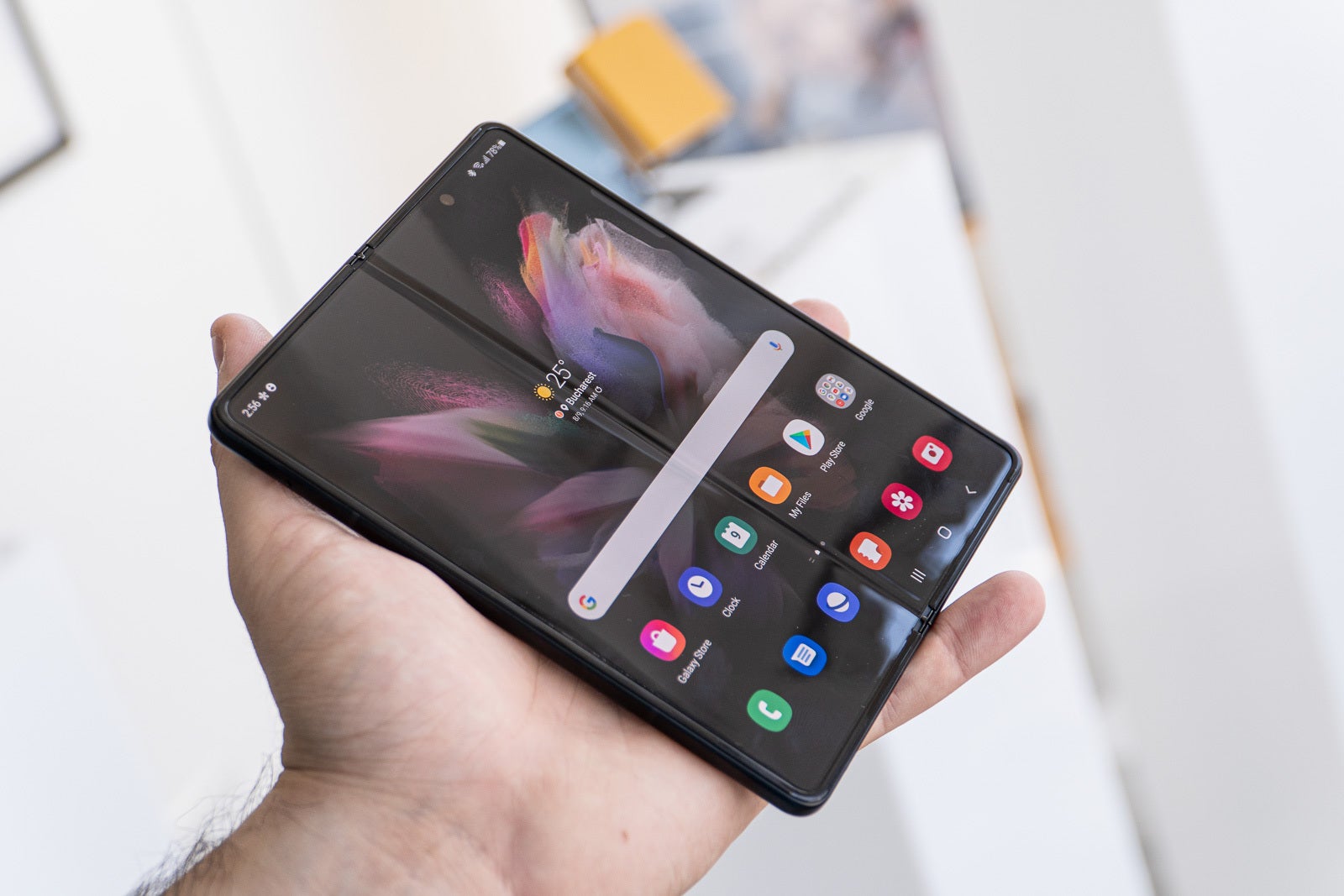
Well, obviously the Galaxy Z Fold 3 is the main competitor here, there aren't many foldable devices out there with this formfactor (yet). We're cooking a detailed comparison between the two phones but initially - the biggest advantage of the Fold 3 lies in its software and the fact that Google services are present onboard. On a pure hardware level, it's pretty tight between the two phones (both sport the 888 chipset), and design wise - it's a matter of personal preference - whether you prefer the inward or outward folding design.
Summary
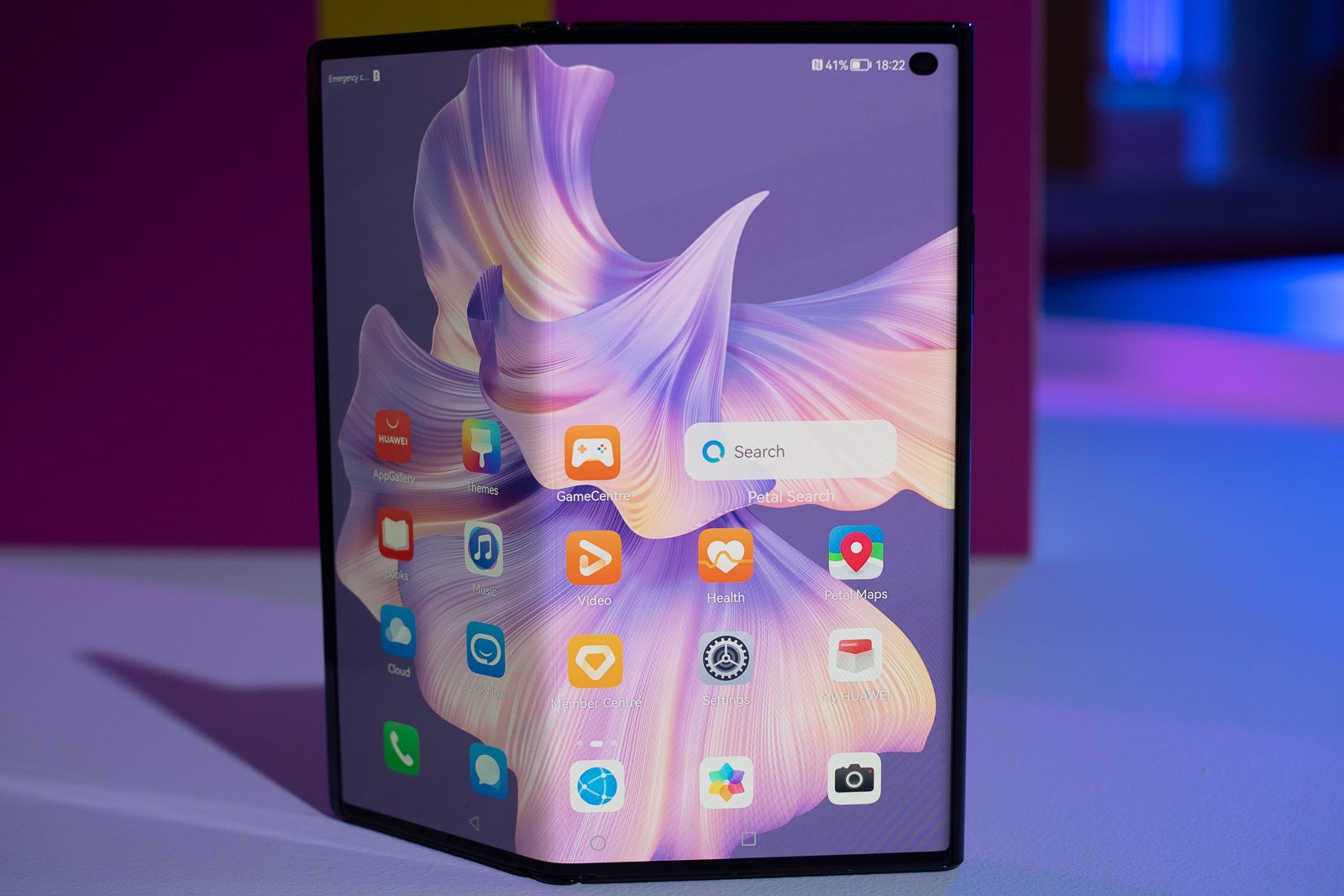
The Huawei Mate XS2 shapes out to be a great foldable device. It feels premium, and Huawei has focused on perfecting the most important aspects of a foldable - the hinge mechanism, the crease in the screen, the durability of the flexible panel, and the functionality of the OS (despite the GMS omission).
(This article is just a simple hands-on preview - it will grow and transform itself to a full-blown review once we get to put the phone through its paces. Stay tuned)
Follow us on Google News















Things that are NOT allowed:
To help keep our community safe and free from spam, we apply temporary limits to newly created accounts: